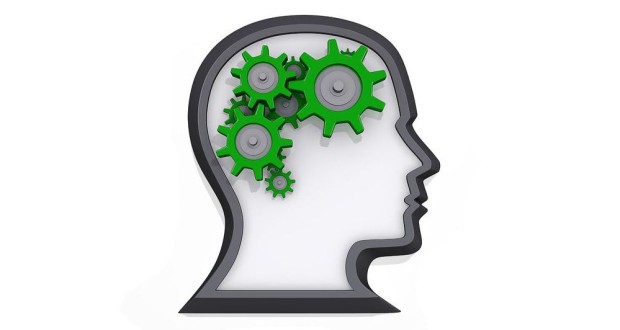One of the most frustrating aspects of the aging process is its impact on our cognitive abilities. No matter how healthy your personal lifestyle might be, it is a virtual certainty that your capacity to recall information, speak skillfully and solve certain problems will decline with age. Many people believe that such cognitive issues are inevitable, and do nothing to try and prevent them.
But what if there was a relatively simple way to keep the mind relatively sharp as it ages? For several years, some have argued that “brain training” can help the people maintain and even improve their memories, concentration and problem-solving skills. While brain training programs do have their fair share of skeptics, a comprehensive 2014 study suggests that it may be possible to bolster the brain with mental exercises.
How “Brain Games” Work
As their name indicates, brain training games are designed to give the mind a mental workout. Like strength-training for the muscles, the goal of brain training is to improve the mind’s performance capabilities, enabling it to function more efficiently and effectively. An example of a brain-testing game is a “memory matrix,” in which the user is shown a grid of blocks on a computer screen. When the test first begins, all of the grid’s blocks have the same identical color, usually light gray.
Immediately after the test starts, certain blocks in the grid take on a different color for a few seconds, before reverting back to their previous appearance. The user is then tasked with recreating the pattern they have just seen by clicking on certain squares on the grid. Users who can replicate the pattern are subsequently presented with a larger grid, along with a larger and more complex pattern. Conversely, should a user make a mistake, the grids shrink in size while the patterns become more simplistic. Regardless of how successful they are in choosing the correct blocks, a user is often given a set number of attempts to complete this exercise.
Another type of brain-training game is known as “word bubbles.” “Word bubbles” gives the user a three-letter beginning of many common (and perhaps not so common) words, such as “per” and “tre.” These combinations are referred to as “stems.” The player is then asked to type in as many words as possible that start with these three letters. Users can only enter in three words of the same length; for example, a player with the stem “med” can submit no more eight-letter words after typing in “meditate,” “medicine,” and “medicate.” The user is given a total of three stems, and is allotted one minute to think up words for each combination. Points are given for each accepted word, and the player is presented with his or her score at the end of the game.
The Impact on the Brain
With the increasing popularity of brain training, a number of studies have attempted to gauge the effectiveness of these exercises. According to a study released in January 2014, certain mentally stimulating games can be quite beneficial to the brain. Published in the Journal of American Geriatrics Society, this report was a collaborative effort between researchers at Johns Hopkins University, Indiana University, the University of Washington and the University of Florida.
This particular study monitored a group of 2,832 seniors between the ages of 65 and 96. The subjects were split into four distinct groups, three of which underwent brain exercises aimed at improving the brain’s processing speed, reasoning capacity and overall memory. This training period lasted between five and six weeks, involving ten to twelve individual sessions. Each session lasted between 60 and 75 minutes in length. The fourth set of volunteers, or the “control group,” participated in no brain-boosting exercises whatsoever. A large chunk (60 percent) of non-control volunteers were randomly chosen to undergo additional training sessions, occurring both 11 and 35 months after their initial training period had concluded.
The researches developed specific exercises to improve certain cognitive functions. For example, subjects were asked to look at an object on a computer screen while simultaneously identifying items adorning the screen’s outer edges. This activity was designed to boost the speed at which the brain processed information. To improve memory, the researchers had subjects learn techniques for memorizing word lists, sequences and certain ideas. Reasoning exercises involved tasks such as recalling numerical patterns.
In order to determine the effectiveness of the program, subjects were asked to complete cognitive tests immediately after finishing their training. Follow-up tests were administered one, two, five and ten years after the initial round of testing. Routine tests were also given to those who had not undergone any mind-sharpening training, as well as those who were required to take additional sessions.
The Ten-Year Impact
After reviewing this collection of data, the researchers concluded that the exercises had a meaningful impact on the participants’ mental sharpness. Some highlights from the study are shown below:
- On the ten-year follow up test, 73.6% of those who underwent reasoning training improved upon their pre-study performance in this area. In contrast, the same could only be said of 61.7% of those who did not perform such exercises (instead, these subjects only practiced for their routine reasoning tests, explaining their improved scores).
- An even greater gulf was observed when measuring processing speed. Of all of the subjects in the control group, less than half (48.8%) managed to improve or maintain their brain-processing abilities over the ten-year period. Conversely, 70.7% of seniors who had participated in speed-processing training could make this claim.
- With regards to memory, the brain exercises did not cause a similar scoring gap between control group subjects and training participants. Though the training sessions did boost memory after a period of five years, these improvements had all but vanished by the study’s ten year mark.
In order to prevent physical decay, doctors and other medical professionals have long stressed the need for adults to exercise regularly as they age. If the findings of the report described above are indeed accurate, it would seem that cognitive workouts could do for the brain what physical activity does for the body.
 Natural Knowledge 24/7 Educate yourself with nutrition, health and fitness knowledge.
Natural Knowledge 24/7 Educate yourself with nutrition, health and fitness knowledge.






